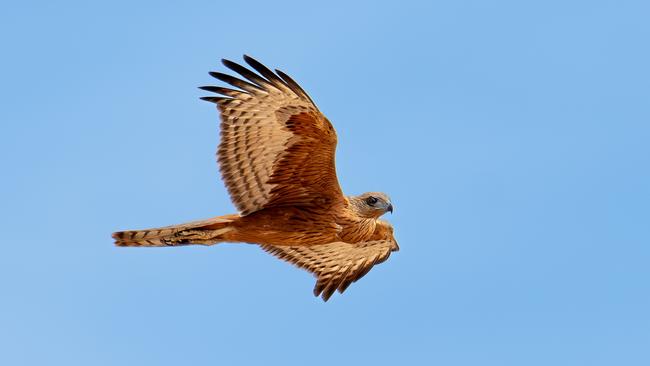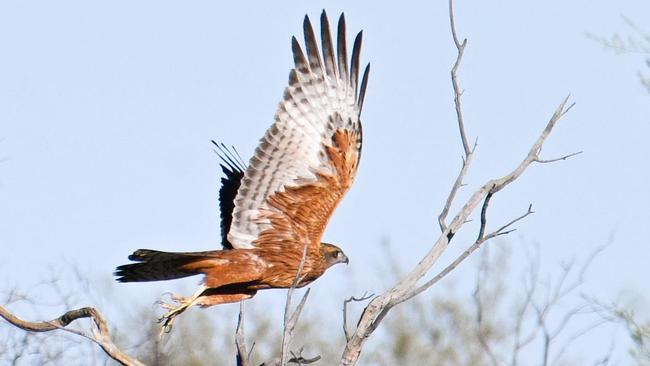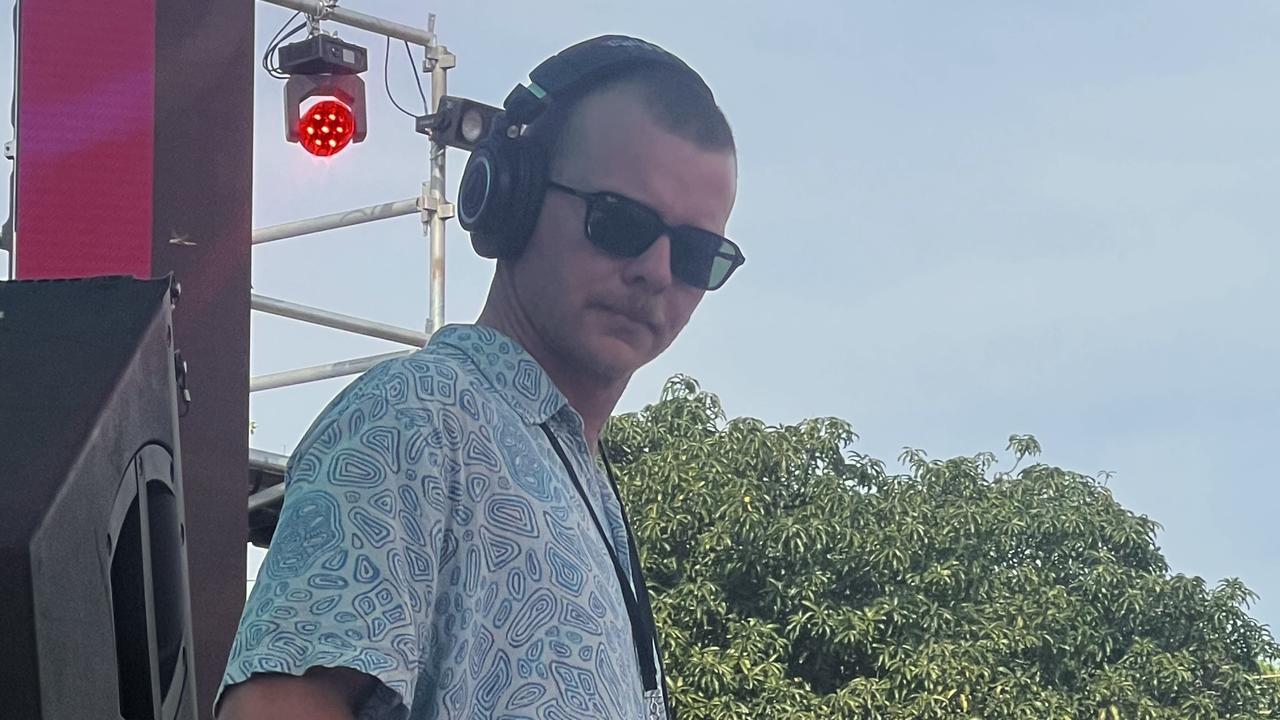Endangered red goshawk snapped in Central Australia for the first time in three decades
‘My jaw dropped’: An endangered raptor that ‘eats cockatoos for breakfast’ was photographed in Central Australia, marking the first sighting in the region for three decades.

Australia’s rarest bird of prey photographed in Central Australia marks the first confirmation of the species in the region for three decades.
An endangered red goshawk was spotted by resident ecologist Tim Henderson at Newhaven Wildlife Sanctuary, on Ngalia Walpiri and Luritja country west of Alice Springs.
“My jaw dropped when I realised what it was,” Dr Henderson said.
“I was out radio-tracking some possums in the northern part of the sanctuary when I saw this large, reddish-brown bird of prey flying overhead, which looked different to any species I’d expect to see out here.”

Dr Henderson luckily had his camera at hand and was later able to confirm the raptor was a red goshawk; one of just 900 – 1400 individuals estimated to remain.
Birdlife Australia researcher Rich Seaton said the birds were “fearsome” predators.
“There are not too many predators that would take on a sulphur-crested cockatoo, but this thing eats them for breakfast,” he said.
“It’s an ambush predator, sitting in the branches under the canopy waiting for birds like lorikeets, cockatoos and even kookaburras to pass by. They are incredibly fast and impressive flyers and can chase down prey from a standing start.”
The red goshawk was historically found in open woodlands and forests stretching from New South Wales, through Queensland and the NT, to the Kimberley in Western Australia.
It has been wiped out from at least 34 per cent of its original range, largely due to habitat loss.
Dr Seaton the photographs were “a very significant record” helping to confirm the birds made months-long excursions from their tropical breeding grounds into arid zones – some covering more than 1500km at altitudes 1000m above ground.
More Coverage
Originally published as Endangered red goshawk snapped in Central Australia for the first time in three decades





